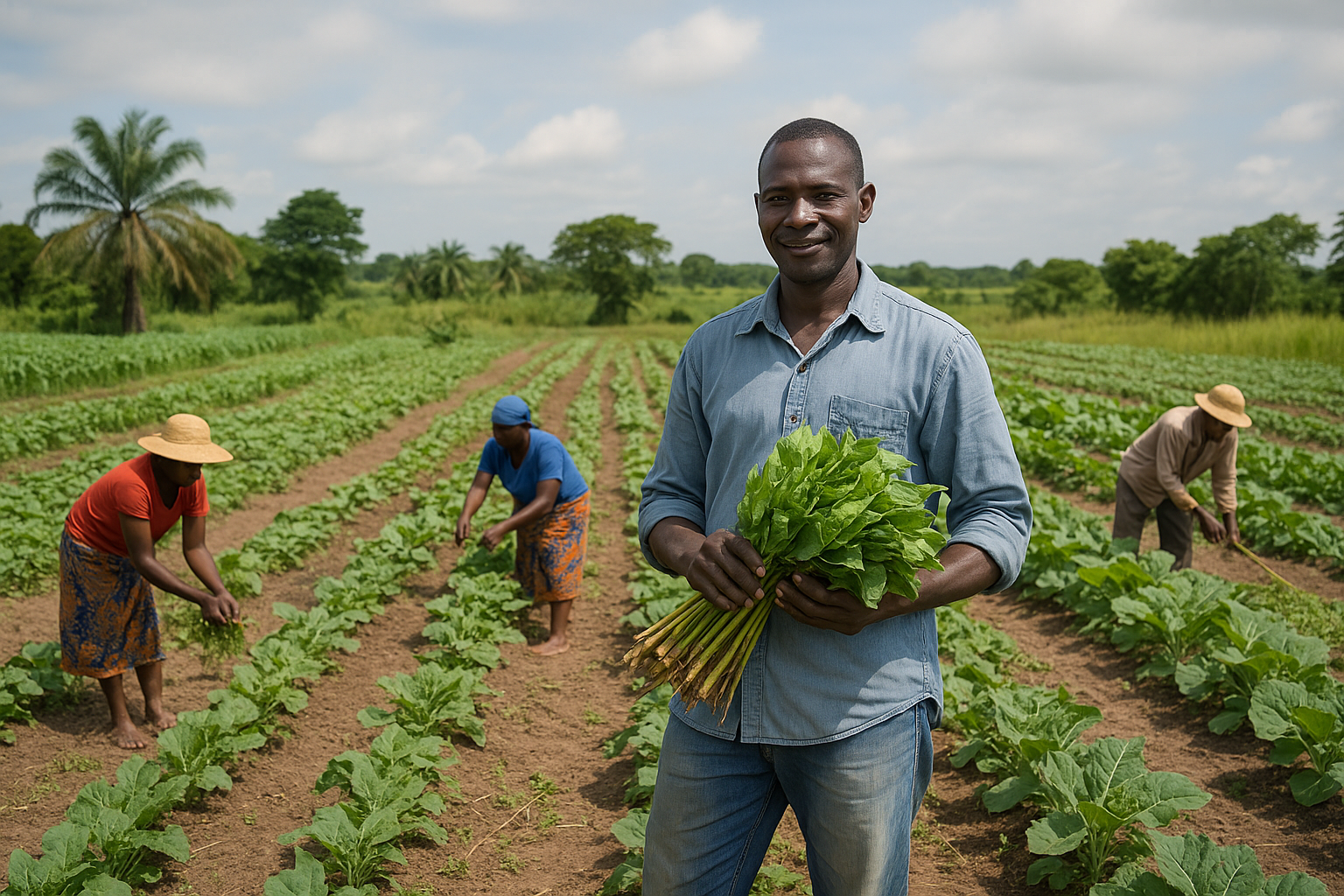Tanzania Hosts Landmark SSTC Dialogue to Transform Africa's Agrifood Future
Delivering his address, Abebe Haile-Gabriel, FAO Assistant Director-General and Regional Representative for Africa, emphasized SSTC as a core pillar of FAO’s mission.

- Country:
- Ghana
In a pivotal move to accelerate agricultural transformation and build resilient food systems across Africa, the Regional Policy Dialogue on Strengthening South-South and Triangular Cooperation (SSTC) kicked off today in Tanzania. The two-day event, co-organized by the Food and Agriculture Organization of the United Nations (FAO) and the Government of the United Republic of Tanzania, brought together high-level government officials, private sector stakeholders, technical experts, and international development partners.
The dialogue underscores the increasing urgency to address overlapping global challenges—climate change, food insecurity, economic inequality, and fiscal constraints—through collaborative, innovative solutions. It represents a strategic milestone as FAO marks its 80th anniversary, reaffirming its legacy of fostering global solidarity and shared growth.
SSTC: A Catalyst for Inclusive Agrifood Transformation
South-South Cooperation (SSC) involves the mutual exchange of knowledge, technology, and resources between countries of the Global South, while Triangular Cooperation (TrC) includes support from a third party such as a multilateral agency, often acting as a technical or financial facilitator. Together, SSTC provides a dynamic, demand-driven model to localize development strategies and bolster food systems resilience.
Opening the event, Stephen Justice Nindi, Deputy Permanent Secretary at Tanzania’s Ministry of Agriculture, highlighted Tanzania’s strong commitment to accelerating agricultural growth. “This platform helps us learn from each other and formulate locally appropriate, African-led strategies that serve the aspirations of our farmers and rural communities,” he said.
FAO’s Vision and Priorities for SSTC
Delivering his address, Abebe Haile-Gabriel, FAO Assistant Director-General and Regional Representative for Africa, emphasized SSTC as a core pillar of FAO’s mission. “SSTC is not an accessory but central to the transformation of agrifood systems. It embodies solidarity and shared responsibility—principles FAO was founded upon.”
Haile-Gabriel laid out three strategic priorities to strengthen SSTC:
-
Mainstreaming SSTC into national plans and budgets to embed it within government policy frameworks.
-
Expanding partnerships beyond traditional stakeholders, involving academia, farmers’ organizations, and the private sector.
-
Institutionalizing strong monitoring and evaluation systems to measure impact and ensure accountability.
These priorities were echoed by Anping Ye, Director of FAO’s SSTC Division, who reaffirmed FAO’s commitment to delivering high-quality, country-driven solutions: “Our Member States already hold many of the answers. Our role is to build bridges so those answers can be shared and scaled.”
Key Themes and Country Innovations
The dialogue revolves around six thematic focus areas:
-
Institutional coordination and policy coherence
-
Scalable agricultural innovations and technology transfer
-
Climate resilience and sustainable food systems
-
Multi-regional cooperation across Africa, Asia, and Latin America
-
Alignment with national development and FAO country programming frameworks
-
Action planning for capacity-building and inter-ministerial coordination
Day one of the event featured case studies from Uganda, Sierra Leone, and The Gambia, showcasing successful national strategies for integrating SSTC. These include farmer extension services, local seed banks, and regional research networks. Presentations also explored financing mechanisms, such as the FAO-China South-South Cooperation Programme, which has benefited over 100,000 individuals across Africa through technical deployments and resource sharing.
On Day two, participants will focus on technology and digital transformation, roadmaps for institutionalising SSTC, and aligning efforts with Sustainable Development Goals (SDGs). Working groups will draft implementation frameworks aimed at enhancing long-term cooperation and impact.
FAO's Footprint in Africa’s South-South Story
Sub-Saharan Africa has been the biggest beneficiary of FAO’s SSTC initiatives, accounting for nearly 80% of its global cooperation projects. Through cross-regional exchanges, FAO has facilitated:
-
The deployment of over 290 Chinese experts and more than 200 agricultural technologies in countries like Ethiopia, Nigeria, and Zambia.
-
Vietnamese aquaculture expertise applied in Namibia, with Spanish support.
-
Brazil’s school meal programme model adapted in Senegal, Ethiopia, and others to improve nutrition and school attendance.
-
Moroccan support to Guinea and Eswatini for agricultural planning and monitoring systems.
-
Venezuelan investments in rice production systems benefiting 10 African nations.
These examples highlight the power of peer-to-peer learning and demonstrate how SSTC can drive innovation, improve smallholder productivity, and reinforce institutional capacities.
Toward a Resilient, Africa-Led Future
The event, hosted under the theme “Innovation, Inclusion, and Impact”, is expected to produce a slate of forward-looking recommendations and concrete action plans, including:
-
Establishment of inter-ministerial coordination platforms
-
Development of monitoring and learning toolkits
-
Public-private innovation hubs for scaling up successful SSTC models
As global challenges continue to strain agrifood systems, the dialogue in Tanzania represents not just a policy forum but a call to collective action. FAO and its partners remain steadfast in expanding SSTC as a cornerstone for resilient, equitable, and sustainable food systems.










